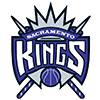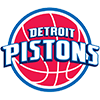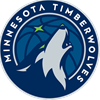After posting a series of best ball fades — running backs here and wide receivers/tight ends here — upcoming posts will look at best ball targets whose prices warrant extended exposure. This one covers running backs.
Antonio Gibson, RB, WAS (67.6 Underdog)
Last year was Gibson's second year playing running back. Behind an awful offensive line with erratic quarterback play, Gibson played with a cracked shin most of the season. In both his rookie and 2021 seasons he lost valuable snaps and targets to J.D. McKissic. And in both of his seasons Gibson still averaged 13.7 0.5PPR points per game.
Gibson will embark on his third season as a running back in 2022. His shin has not yet been cracked. Yet his price is lower than ever and seemingly still falling – you will often see him drift into the late sixth rounds of drafts. Why is there a peak doom narrative around Gibson at the point in his career trajectory where we would conventionally expect a career year?
The gulf between conventional prospect projection and Gibson's current best ball market can seemingly be bridged by the consideration of third-round pick Brian Robinson. The problem there is that Robinson can't actually compete with Gibson and never will. The assumption that Robinson can take anything from Gibson but scraps is based on the belief that talent does not matter – it's a common refrain from the anti-RB wing of so-called analytics, so it makes some dreary sense that normal people would adopt it – but it's a wrong assumption all the same. Robinson is a bad prospect whose selection will age poorly, and in the meantime he'll only play when Gibson is unable to. If you're worried about Robinson you might as well worry about Jaret Patterson while you're at it -- he could actually average 5.0 yards per carry in the Alabama offense.
Elijah Mitchell, RB, SF (70.4 Underdog)
It's easy to forget, but Mitchell was not supposed to fall to the sixth round of the 2021 draft. He grades very well by all conventional scouting criteria – super productive, super athletic. Sometimes players like Mitchell and James Robinson fall while the NFL chases comically inferior players like Trey Sermon instead. It doesn't have to mean anything other than a tedious reminder that the people who run the NFL are fallible. Some people have trouble getting over it, though, even though Mitchell obviously wouldn't go in the sixth round if the draft were held again. He'd go in the third, where he should have gone all along.
If a Mitchell critic points toward Matt Breida or Jeffery Wilson as some ostensible cautionary tale about Shanahan backs, then you should point them toward almost any basic facts about any of the three players. All three players were productive players in college, but only Mitchell carries both plus collegiate production and plus running back athleticism. Wilson, for instance, is one of the worst athletes at running back league-wide. Breida is fast and explosive, of course, but his 4.39-second 40 was logged at only 195 pounds, which is too small to project volume in the NFL and helps explain why Breida fell apart after extended exposure. Breida's collegiate rushing production was also boosted a bit by Georgia Southern's unique Willie Fritz scheme, and the tasks in which he accumulated his numbers largely don't exist in the NFL.
Mitchell thrived with pro-style tasks at Lafayette and was the clear headliner even in a backfield with fringe NFL prospects Raymond Calais and Trey Ragas. All three of them were very good college running backs, but Mitchell was clearly a level above the other two. Then Mitchell ran a 4.35 at 201 pounds before reportedly playing more around the 210-pound mark by the regular season. In short, it's not insightful to criticize Mitchell by pointing out that a handful of good fantasy games were logged by a plodder (Jeffery Wilson) and an undersized fumbler (Matt Breida). Plodders and fumblers get replaced. Mitchell is neither of those things, and his NFL case study is fundamentally different from those of Wilson and Breida, too.
The level of trust and downright dependency Kyle Shanahan showed toward Mitchell in 2021 is something you don't often see. Mitchell was productive for four years in college, posted some of the best workout numbers of his class, then kicked aside a third-round pick rookie ahead of him in the same draft to draw 11 games of 15 or more carries and six games of 20 or more carries in 14 games. That profile is sterling and yet you have people looking for any reason to pretend otherwise. The (very late, compensatory pick) third-round selection of Tyrion Davis-Price was made so that the 49ers don't need to repeatedly force Mitchell to play injured in a three-down role like he did as a rookie. Davis-Price is a change of pace player, nothing more. Davis-Price needs to first prove he's any better than Sermon before he can even approach the question of matching Mitchell. Trey Lance is more of a threat to Mitchell than Davis-Price.
Damien Harris, RB, NE (96.3 Underdog)
Harris' upside is limited due to his lack of pass catching, but in the ninth round he's a clearly good value. You can see that his ADP carries the twin anxieties of generalized regression (his touchdown rate is unsustainable!) and job insecurity, but neither of these concerns are especially sound. The touchdown regression is the most understandable concern since 15 touchdowns on 202 carries is a lot, but rather than anomaly it's a number explained by structure and function. We would expect Harris to have an unusually high rushing touchdown percentage due to the structure of the Patriots offense, which relies on high-tempo power running as a foundational function and turns to it especially in the red zone. Saying Harris is due for touchdown regression is like saying a closer on a division-leading baseball team is due for a decline in saves. Maybe if he gets hurt, but probably not to any actionable extent otherwise, especially not to one that leads people to select running backs like Miles Sanders, Tony Pollard or Ken Walker ahead of him.
Harris is very good at what he does and despite the effective Pinkerton propaganda of the Running Backs Don't Matter clique it is not easy to replace his production. This rarely gets acknowledged, but Harris is a uniquely explosive runner. Touchdown carries are a downward pressure on yards per carry, meaning Harris' average of 4.6 yards per carry last year understates how often he was breaking defenses. Rhamondre Stevenson will be the team's lead pass-catching back and the first in line if Harris gets hurt, but Harris will be the lead runner until that point. Sometimes what we might mistake for variance is actually reallocation – Harris' jump from two rushing touchdowns in 2020 to 15 in 2021 is explained by the presence and then absence of Cam Newton rather than regression. Newton ran for 12 touchdowns in 15 games in 2020 – figure it out. Harris is an RB3-quality asset on Underdog but can easily be had as an RB4 at this price.
Rashaad Penny, RB, SEA (113.2 ADP)
The downside is real with Penny since he has a meniscus tear in his history, but his ADP is affected by more than just that angle. There remains a ridiculous debate on the question of whether Penny is even talented in the first place, and it's irrational to the point that you sense a prior bitterness on the part of his critics. I'm a longer and louder Penny advocate than literally anyone – I am the person who has the most right to be bitter about his disappointing NFL career! – yet it's not difficult for me to remember how Penny was the exact same player at San Diego State as he was for the Seahawks during his rampage last year. The anomaly was not Penny's 2021 production but rather that he merely got the chance to succeed in the first place. In his earlier years the Seahawks right or wrong chose to commit to Chris Carson, and in that span Penny was still clearly productive, just denied volume. The distinction doesn't matter to those left bitter from their earlier busted Penny investments, but once they've had their fill of sour grapes they might want to take another look at the picture.
It's not a question whether Penny is a more talented runner than second-round pick Ken Walker. The more serious question would ponder how many running backs league-wide can match Penny's rushing talent. It's a very small number! Penny is more talented beyond any doubt because he's just a bigger, more athletic version of Walker. The 4.46 Walker ran at the combine at 211 pounds was matched by Penny at 220 pounds, and Penny's career at San Diego State was more impressive than Walker's at Michigan State and Wake Forest. Both players were high-volume, high-efficiency runners but Penny posted stronger volume and efficiency. Walker was merely a very good player for Michigan State, whereas Penny is absolutely one of the best running backs in college football history. If the people fading him can't recall that far then that's their issue, and if Penny stays healthy in 2022 then they'll really have something to complain about.
Ronald Jones, RB, KC (130.9 ADP)
Jones has his limitations but as a pure runner he's quite good. In the Chiefs offense he should be very productive on a per-touch basis, and he should have a 1B-type role as a rushing specialist behind Clyde Edwards-Helaire, who should start and handle most passing-down work. In a year where the Chiefs intend to run more, Jones could be a part of their solution rather than just some guy hanging around. Edwards-Helaire has had durability struggles, of course, and being 5-foot-7, 204 pounds means he can only stand up to so much work. Jones is going too late, especially in a market where theoretical upside picks like Tony Pollard go in the seventh round. If Edwards-Helaire misses time then Jones will likely run wild.
Isaiah Spiller, RB, LAC (139.4 ADP)
It wasn't long ago that people would argue about whether Spiller was better than Ken Walker or even Breece Hall, and at that time I was certainly a critic of his because it was a ridiculous debate. Falling to the fourth round of the 2022 draft, though, placed Spiller in a price range more in line with his abilities, and at that reduced price he made plenty of sense for the Chargers. Similarly, at this low best ball price even I, a former critic, am very much interested. No matter how skeptical a person might be of Spiller, it's easy to rationalize this pick because he can't possibly be as bad as Joshua Kelley or Larry Rountree. Plus, Spiller might actually be pretty good.
While not a starter, Spiller will function something like a sixth man in the Chargers offense since Austin Ekeler simply cannot take up a big workload as a runner. Spiller is unchallenged for power functions in this offense, and if Ekeler were to miss time then Spiller could take up a three-down role in one of the league's most enviable offenses.
James Robinson, RB, JAC (171.1 ADP)
Robinson is unlikely to play the full year as he returns from a torn Achilles tendon, but (A) missing some time is not the same as missing an automatic six weeks on the PUP list and (B) Robinson is going way too late even if he does miss six games. I got him in the 18th round of an Underdog tournament draft recently and if someone accused me of collusion for the fact I'd barely know what to say. It looks suspicious! It only makes sense if Robinson is missing the whole year, which he won't! Robinson's over/under for games played should be the same as that of Alvin Kamara, who's still going in the second round. I just don't know what else to say without sounding hysterical.























